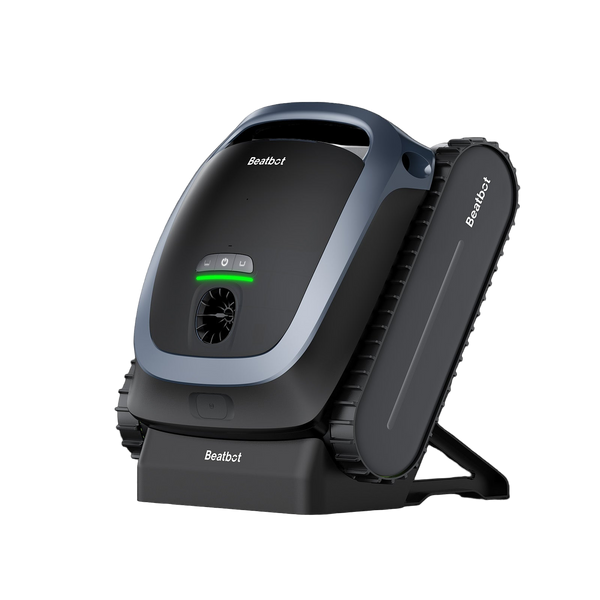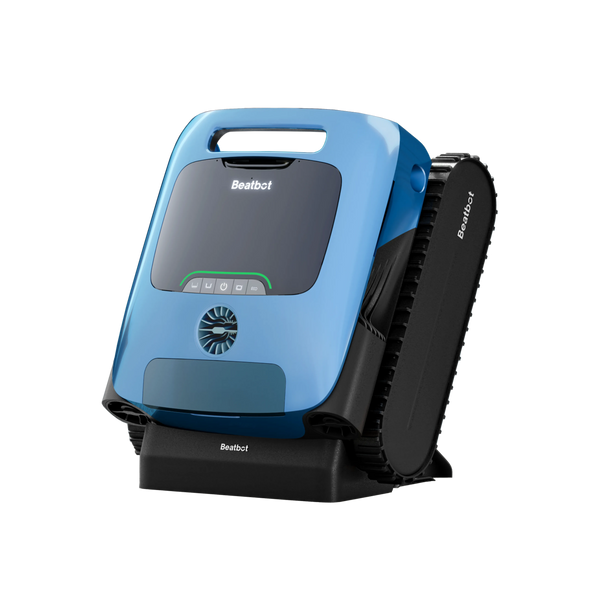Restore Your Pool's Shine: How to Remove Stains Without Draining
Imagine: You're ready to jump in for a refreshing swim one bright afternoon, but you discover ugly stains on your pool's surface — rust, algae or mysterious black spots. Not so fast — don't drain the water! What if you could wipe away those stains, without losing a drop? This step-by-step guide can help you to effectively and gently remove these stains. No draining, no stress, only sparkling outcomes. Are you prepared to bring your pool's glow back? Let's dive in!
Table of content

The Mystery Behind Pool Stains: What's Really Causing Those Marks?
Before we get our hands dirty and deal with those stains, it helps to know what's causing them. Pool stains have various causes—and their treatment approach varies as well. Here's a bit of sleuthing to guide you toward what's really going on in your pool:
Organic Stains
Think leaves and algae and plant debris. These stains tend to be brown, green or black. They tend to show up after storms or if your pool is surrounded by thick trees. In one of our customer stories, a Florida family discovered dark green stains splattered all over their swimming pool after an electrical storm in the summer. They brought their pool back to life by following a few easy steps to remove the stains instead of draining it.
Metal Stains
Stains can be caused by iron, copper, and manganese, all of which may leave rust-colored, green, or black marks, respectively. This occurs when metals seep into your pool water from its source or because of pool hardware. A local pool owner in Arizona experienced these same stains when high iron content in their city's water supply began to deposit on their pool and turn it discolored. But, with the right approach, they were able to restore their pool's sparkle without having to drain a single gallon of water.
Chemical Stains
Chemical imbalances, like high levels of chlorine or acidic water, can also lead to stains. These blemishes are usually blue or cloudy. A couple in California battled blue-tinged blemishes from too much chlorine. With the assistance of specialized stain removers, their pool was again looking like new.
Now that you established the mystery behind the pool stains, let's get onto the most important part: how you can remove them without draining the pool!
Effective Stain Removal Techniques: No Draining, No Worries
No more having to waste your time draining your pool and scrubbing for hours to remove difficult stains. However, with the right techniques, it is possible to restore your pool's beauty without losing water. Let's look at some tried-and-true methods to make those stains go away.
Pool Stain Removers: The Shortcut to Stain-Free Waters
No one of the fastest and best ways to treat pool stains is to use a stain remover specific for pools. Consider these your pool's secret weapons in the battle against unsightly marks. Whether you are dealing with metal stains or organic debris these products have been specially formulated to break down and remove stains without damaging your pool.
A Texas family, for instance, was dealing with tenacious algae stains that developed after a few weeks of letting their pool upkeep slide. They opted to test out the pool-specific brand that they could trust to remove the stain. Within hours, the stains began to fade, and by morning, their pool was sparkling clear again.
If using a stain remover, make sure it is appropriate for the type of stain you have. Some removers are designed for organic stains, while others don't. For example, Beatbot has a stain remover that gets pool stains out. Finding the right product for your needs can go a long way, even though every pool is unique.
To use them, just follow the manufacturer's instructions, add the recommended amount of product to your pool, and let the circulation system do its work. In just hours you'll see the stains start to dissolve, returning your pool to its former, pristine self.
Ascorbic Acid: A Powerful Ally for Metal Stains
Rusty or greenish stains due to metal contamination can be tricky, but ascorbic acid (yes, the same vitamin C that's in your daily supplements) can do wonders. It chelates metals, such as copper and iron, to lift the stains off your pool's surfaces, leaving it looking brand new.
Take this one, for example: a homeowner in Chicago discovered some big red rust stains on their pool that came from high levels of iron in the water. So they began experimenting with ascorbic acid rather than draining their pool. The stains started going away after doing the solution, and they quickly got to enjoy a gorgeous, stain-free pool.
To use ascorbic acid crush some vitamin C tablets or buy powdered ascorbic acid. Just spray it directly on the grease and watch it melt away. Allow time for the solution to do its job, and then go in with a soft pool brush and agitate the remaining residue. When you're finished, turn on your filtration system to remove any particles that have been left over.
Baking Soda: The Affordable, Safe Solution
Some of the most effective solutions are the most basic. That common household staple, baking soda, can be an effective ally in the battle over pool stains. It's ideal for removing light mineral deposits or organic stains.
Let's say there is a person who has a pool in Colorado with some light scale on the surface. Instead of using harsh chemicals, they made a paste of baking soda and water. After applying the paste to the stains, they scrubbed gently with a soft-bristle brush, and were amazed at how easily the stains were removed. It was an inexpensive, safe and easy fix that didn't involve draining their pool.
To use baking soda as a scrub, combine it with enough water to create a thick paste. Spritz on the stained areas and lightly scrub with a pool brush. Then rinse the area with clean water. Repeat as necessary for any stubborn stains.
Acidic Solutions: Tackling Tough Mineral Stains
An acidic solution could be the solution for all those tough, mineral-related stains. Muriatic acid or diluted chlorine can break down scale build-up and other stubborn deposits. Despite this, there are some caveats to using these acids.
In one instance, a Nevada pool owner faced stubborn white, chalky stains left by hard water deposits. Using a diluted solution of muriatic acid, they were able to dissolve the deposits and refinish their pool's finish without having to drain it. The trick is to dilute the acid (one part muriatic acid to ten parts water), then scrub gently with a soft brush.
Protect your hands and eyes from acidic solutions, and check the water's pH and chlorine levels afterward.

Preventing Future Stains: Keep Your Pool Sparkling All Year Long
After you eliminate the stains, you need to take some precautions to keep your pool stain-free and bright.
Monitor Your Chemical Levels
Regularly monitoring your pool's water chemistry is one of the first things you'll want to do. The key to preventing stains from a chemical imbalance is making sure that your pool's pH, chlorine, and alkalinity levels are balanced. Know Your Chemical Levels Monitoring those levels can help you keep your pool water in prime condition.
Use a Pool Cover
Another excellent strategy for keeping your pool stain-free is to cover it when it isn't in use. Covers help to keep rubbish such as leaves and dirt (along with pollen) out of the water — this can contribute to organics stains. This not only minimizes your need for cleaning, but also maximizes your relaxation and enjoyment time with your pool.
Clean Debris Promptly
It is necessary to clean your pool every now and then. Be sure to pick off any visible debris as soon as it forms. If organic materials remain in the pool too long, the pool may stain. Regular brushing is also key to preventing build-up on the pool surfaces to maintain freshness and cleanliness.
Maintain Your Filtration System
Another crucial step in keeping your pool clean and clear is maintaining your filtration system. Regular filter maintenance, along with ensuring proper removal of contaminants, assists with water clarity, and reducing staining caused by buildup from debris.
Use a Metal Sequestrant
Finally, if your water has high levels of metals like iron or copper, you may want to use a metal sequestrant. This product reacts with metals in the water and makes them unable to react with the pool surfaces (to stain them).
With these suggestions in hand, however, your pool can stay spotless all summer long giving you the opportunity to enjoy a sparkling pool with very little additional scrapbook at all!
Relative Blogs
About the author


























